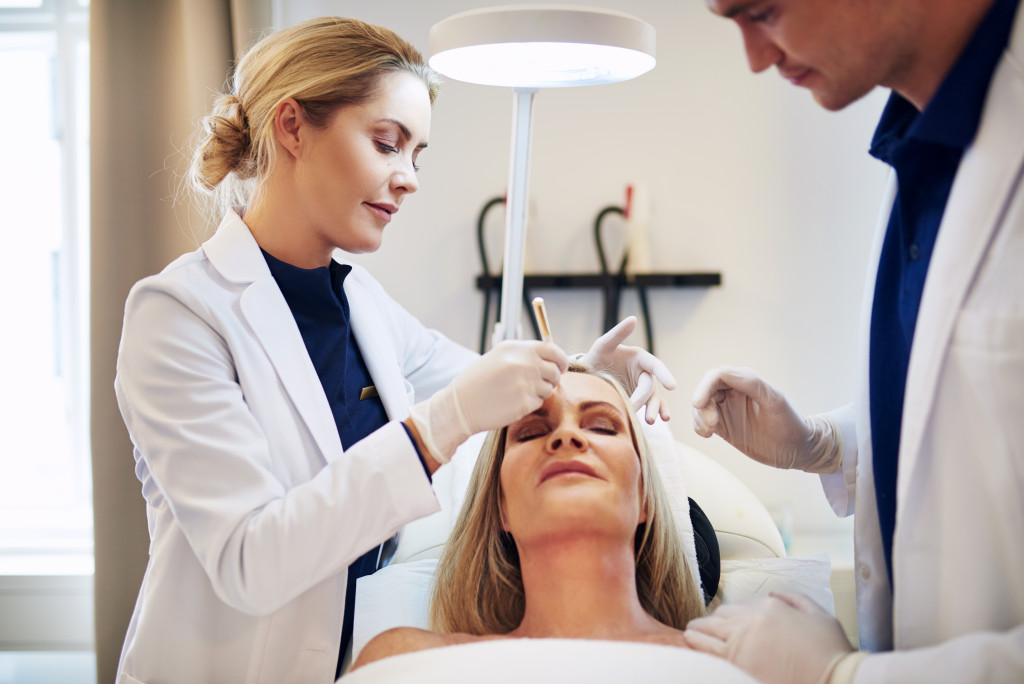- Science has revolutionized the cosmetic industry by advancing formulation techniques.
- Injectables and cutting-edge technologies like Virtual Try-On, 3D printing, and Augmented Reality are popular in the industry.
- Natural ingredients are being used to develop eco-friendly products with less environmental impact.
- Science has helped create innovative cosmetic products that meet modern consumer demands.
In today’s world, beauty standards have evolved, and people are looking for practical, innovative cosmetic products to achieve the desired results. Science is paving the way for cosmetic innovation, vital in transforming the industry. Cosmetics have come a long way since ancient times when people used natural substances to beautify themselves.
Today, science has revolutionized the cosmetic industry, and we are experiencing a new era of beauty. Here’s how science has transformed the cosmetic industry.
Advances in Formulation Techniques
Science has helped the cosmetic industry to develop new and advanced formulation techniques. Cosmetic manufacturers now better understand the physiology and microbiology of the skin. They are using this knowledge to create products that positively impact the skin.
Advanced formulation techniques like liposomes, nanosomes, and microencapsulation have allowed cosmetics manufacturers to deliver active ingredients effectively. Formulation techniques have helped the cosmetic industry produce products that penetrate deeper into the skin, improving their effectiveness.
The Rise of Injectables

The cosmetic industry has long been at the forefront of technology and innovation, with science playing a crucial role in its growth and success. The rise of injectables is just one example of how advancements in technology and medicine have shaped the industry’s landscape. Specifically, dermal filler injections have become increasingly popular, allowing customers to attain a youthful and refreshed appearance without requiring invasive surgical procedures.
These injections use biocompatible materials to fill wrinkles and fine lines, giving skin a plump, youthful appearance. With technology continually evolving, there is no telling what other cosmetic innovations are on the horizon, but science will undoubtedly play a vital role in their development.
Use of Cutting-edge Technologies
From using drones to deliver products to customers to incorporating augmented reality into makeup applications, this industry has never shied away from innovation. This blog post will delve into the cutting-edge technologies poised to revolutionize the cosmetic industry.
Virtual Try-On Technology
Virtual Try-On technology lets customers visualize how makeup products would look on them before purchasing. Using cameras and AR-powered software, customers can see how a specific shade of lipstick or eye shadow would look on their faces in real-time. Coupled with AI, this technology is becoming more sophisticated and accurate in understanding individual facial features for a better virtual try-on experience.
3D Printing
3D printing has opened up opportunities for greater customization in the cosmetic industry. With 3D printing, makeup artists can design and create tailored products, personalized prosthetics, and 3D-printed nails. This technology can also reduce waste and the amount of packaging required for cosmetic products.
Clean Beauty Technologies
With growing concerns over the impact of cosmetic products on the environment, clean beauty has become a significant trend in the cosmetic industry. Brands are leveraging technology to create products free from harmful chemicals and have a lower environmental impact. At the forefront of these clean beauty, technologies are biodegradable packaging, waterless products, and eco-friendly ingredients.
Augmented Reality in Retail
Augmented Reality (AR) is becoming increasingly popular in retail, and cosmetics brands are not lagging behind. AR-powered mirrors and displays provide customers with immersive experiences in which they can interact with products virtually.
AR-equipped beauty apps allow customers to try on makeup and skincare products virtually and receive personalized recommendations based on their preferences.
Use of Natural Ingredients

In a time when people are becoming more conscious of the impact of chemicals on their skin and the environment, science has been pivotal in introducing natural ingredients to the cosmetic industry. People are becoming more aware of the benefits of using natural ingredients, and companies are developing their products with natural ingredients.
Argan oil, tea tree oil, and aloe vera are among the natural products used in the production of cosmetics. Science has helped manufacturers develop products that contain natural ingredients and deliver the intended results.
Sustainability in Cosmetics
The rise of sustainability in various industries has spilled over into the cosmetic industry. Cosmetic companies are looking into environmentally friendly production, packaging, and disposal methods.
Consumers today are paying attention to companies’ commitment to sustainability, and some cosmetic manufacturers have taken up the challenge to go green. Science has helped cosmetic companies develop eco-friendly products that meet the industry’s expected quality standards while reducing the carbon footprint.
The Bottom Line
In conclusion, the cosmetic industry has come a long way thanks to science. Cosmetics have evolved from natural products to prescription-only cosmetics, and manufacturers are producing eco-friendly products that meet the demands of the modern-day consumer. Science will continue to transform the cosmetic industry, and we look forward to more innovations that enhance the beauty and well-being of consumers.
